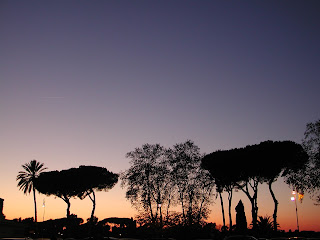That cool, rainy
weather seems to always come when we are playing our Young People's
Concerts, and here it is again! Yea, though skies may be gray,
the music will be very colorful as the KSO presents “Picture This”
Wednesday through Friday at 9:30 AM at the Civic Auditorium. There
will also be 10:45 AM shows Wednesday and Thursday. These concerts, under the direction of James Fellenbaum, will feature the Go! Contemporary Dance Works, cartoonist Charlie
Daniel, and a singalong called The Color of Music.
Selections will include
Beethoven's Eroica Symphony,
Rimsky-Korsakov's Capriccio Espagnol,
and Mussorgsky/Ravel's
Pictures at an Exhibition. They
will be accompanied by slides
of artwork related to the music by students from area elementary
schools. Please note that the 9:30 Wednesday and Thursday shows are
SOLD OUT.
--------------------------------*******************************--------------------------------
People celebrate
Halloween in many different ways and to many different degrees. Or
not! I haven't decided what to "be" for Halloween, sometimes I get inspired at the last minute. But for every person who wins the Best Costume prize or gets the most
candy, there's someone else who gets their house papered or breaks up
at a party. As for the people who'll be out papering, and that hose
beast ex, the 2:30 start of Sunday afternoon's Chamber Classics
concert at the Bijou will likely come too early in the morning for
them, EVEN WITH THE TIME CHANGE. It is their loss, as they will miss
falling back with Wagner's exquisite Siegfried Idyll,
and three of Mozart's finest instrumental works:
the String Serenade Eine
Kleine Nachtmusik, the
C-minor Wind Octet aka Serenade K.
388 (384a), and Symphony
No. 35, the “Haffner.” There
is no way to mask the fact that this concert, again under the direction of Maestro Fellenbaum, will be one beautiful afternoon.
Eine Kleine
is as monumental a work as there is, yet it will serve to prelude the
touching Idyll which
Wagner first had performed for his wife's birthday (coincidentally
Christmas morning), in
1870. It's as small a dose of Wagner as one can take to feel the genius and strength in his music. The second half will
start with the Wind
Serenade, throughout
which Mozart creates an
organ-like texture. In
the wings, the string players will be champing at the bit to play the
“Haffner” Symphony, excerpts from which are a frequent sight on
audition lists. Especially
for the cello. Especially the
Presto last movement.






